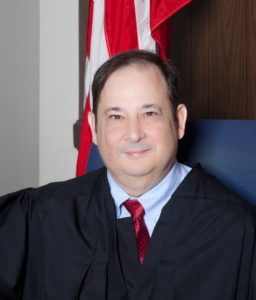Holding Court: Criminal Trials in Rye
Holding Court is a new series by retired Rye City Court Judge Joe Latwin. Latwin retired from the court in December 2022 after thirteen years of service to the City.
By Joe Latwin

“When a man knows he is to be hanged in a fortnight, it concentrates his mind wonderfully.” ― Samuel Johnson, The Life of Samuel Johnson LL.D. Vol 3. Time comes to fish or get off the pot. Take a plea or go to trial. For misdemeanor cases, the goal is to dispose of the case within 90 days from arraignment. Once motions and disclosure are complete, the Court will hold a pre-trial conference. At the conference, the Court will set down the ground rules for the trial and schedule a tentative trial date. If it is to be a jury trial, the trial will be set about 12 weeks hence. If it will be a bench trial, the Judge will set a trial date as the Court’s schedule permits in the near future. The Court will request a jury from the Commissioner of Jurors.
On or before the trial date, the Court may hold hearings to determine if certain statements, seized items, or past criminal convictions will be admitted at the trial. Once completed, 60 or so summoned jurors will assemble in the Courtroom. The Judge and the attorneys will question the prospective jurors to determine if they could be fair and impartial jurors that can hear the case. There are an unlimited number of challenges if there is cause to disqualify a juror. Each side also gets three challenges that can be used for any non-discriminatory purpose. Once six jurors are picked, two more will be selected as alternate jurors. Now the trial is ready to begin.
The Judge will usually give preliminary instructions to the jury describing everyone, what their roles are, and what the trial process will be. The Judge decides what the law is and the jury decides what the facts are. All witnesses except for the defendant will be excused from the Courtroom so as to not hear the testimony of others. The District Attorney will present an opening statement – a summary of what he/she intends to prove at trial and what the evidence will be. The defendant may but need not make an opening statement.
Next the District Attorney will call its witnesses. Each witness will be subject to cross examination. Once the People have finished with their witnesses, the People will rest. Often defendants will make a motion to dismiss the case claiming the People failed to prove one or more essential elements of its case. If the case is not then dismissed, the defense will put on its witnesses, if any. Since the burden of proof is on the People and a defendant has a right not to testify, the defense may choose not to present any witnesses.
At the end of the witness testimony, the defense can make a summation or closing statement summarizing what it thinks the People have not proven, what the defense has proved, or how the People’s case is deficient. Then the People can make a closing statement.
Next week Latwin will explain how civil cases work in Rye City Court.




